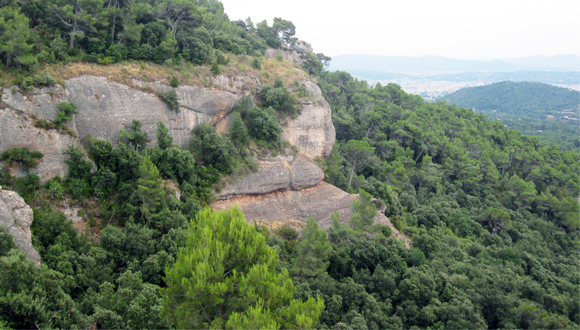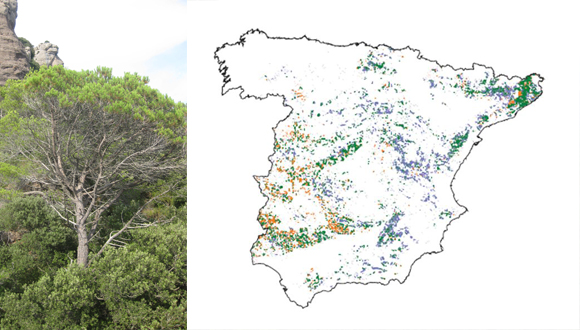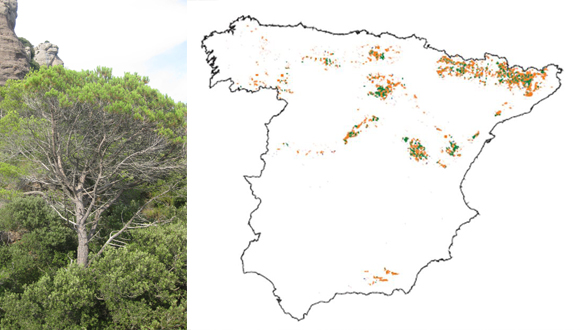The expansion of the Oaks "chokes" the forests of the Iberian Peninsula
A study conducted by researchers at the CREAF and the Autonomous University of Barcelona demonstrates that many pine populations of the Iberian Peninsula are in decline. The study foresees a very unfavorable scenario for some pine species with predicted climate change, which would see the pines negatively affected by both the expansion of the holm-oak, as well as an increase in drought and fire.

According to a new study published by experts at the CREAF and the Autonomous University of Barcelona in the journal Global Ecology and Biogeography, the holm oak woodlands are expanding in large areas and are colonizing the undergrowth of different species of pine trees. This dense layer of holm oaks and other oaks creates a barrier to the establishment and growth of pine seedlings in most forests of the Iberian Peninsula.
The study quantifies that the barriers to the germination and establishment of new pins affects 63% of Iberian Peninsula forests, in species such as the Aleppo pine, stone pine, Scots pine, European black pine and maritime pine. Negative trends have been detected in mountainous pines, in species such as the Scots pine and the European black pine. The authors of the study related the expansion of the holm oak woodlands with the cessation of forest harvesting and forest management on the Iberian Peninsula during the last decades.

The expansion of the holm oak woodlands and others oaks can hinder forest responses to climate change impacts
The study draws a very unfavorable future scenario for some mountainous pine species, such as the Scots pine and European black pine. These pine species would be negatively affected by both the expansion of the holm oak woodlands, as well as an increase in drought and fire associated with climate change. The study shows that fires and droughts have a negative effect on the establishment of pine forests adapted to fire, such as European black pine and Scots pine. Climate change may lead to more changes in the distribution of the holm oak, expanding its distribution to higher and colder areas or limiting its success in drier areas. The study noted that the expansion of the holm oak woodlands with climate change may, in the coming decades, be a key factor in the decline of multiple populations of pines in the peninsula.

Article:
Carnicer, J., Coll, M., Pons, X., Ninyerola, M., Vayreda, J. and Peñuelas, J. (2013), Large-scale recruitment limitation in Mediterranean pines: the role of Quercus ilex and forest successional advance as key regional drivers. Global Ecology and Biogeography. doi: 10.1111/geb.12111







